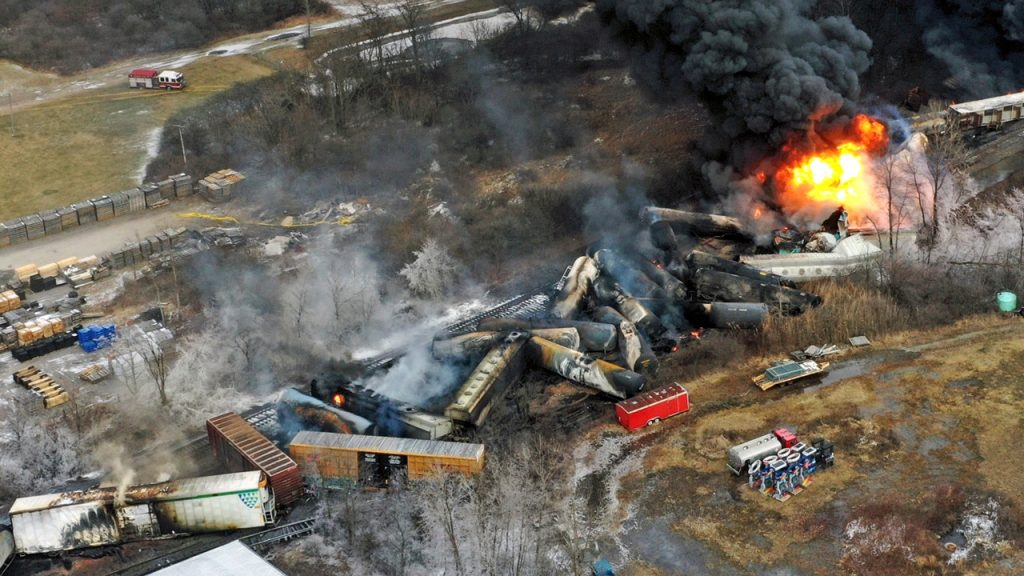Last year’s fiery train derailment in eastern Ohio did not qualify as a public health emergency, according to federal officials, due to the lack of documented widespread health problems and ongoing chemical exposures. The Environmental Protection Agency did not approve the designation, despite concerns about potential long-term health consequences from the chemicals spilled and burned during the derailment. Some residents complained of respiratory problems and rashes, but officials believed the agency had sufficient authority to respond without declaring an emergency.
Residents of East Palestine continue to report health issues such as rashes, nosebleeds, and seizures, with some attributing these problems to the aftermath of the derailment. Despite ongoing monitoring by federal and state officials, concerns persist about the health and well-being of the community. Residents want to ensure they receive the help they need to recover from the disaster, with some calling for a public health emergency declaration to access additional resources for medical assistance.
The railroad responsible for the derailment has spent over $1.1 billion on response efforts, including direct aid to the community. Although a fund has been promised to support the long-term health needs of East Palestine residents, it has not yet been implemented. President Joe Biden has not declared a disaster in the area, in part due to the railroad’s financial contributions to the cleanup efforts. Concerns were raised about the decision to release and burn vinyl chloride after the derailment, with residents expressing fears about potential risks to public health.
An investigation by the National Transportation Safety Board revealed that the vent and burn of vinyl chloride may have been unnecessary, as the company producing the chemical believed there was no dangerous reaction occurring in the tank cars. The full investigation into the derailment’s cause is ongoing, with a preliminary finding indicating an overheating wheel bearing likely caused the crash. The EPA anticipates completing the cleanup in East Palestine later this year, while residents continue to advocate for additional support and resources.
While the EPA maintains that no concerning levels of chemicals were detected in air, water, or soil samples, some residents feel there is sufficient evidence of ongoing health issues and environmental concerns in the area. The decision not to declare a public health emergency has left many feeling abandoned and without hope for the future. Some residents worry that without additional resources and support, their community may struggle to recover fully from the impacts of the derailment. As the NTSB investigation continues, questions remain about the decision-making process and the potential risks associated with the handling of hazardous materials.


